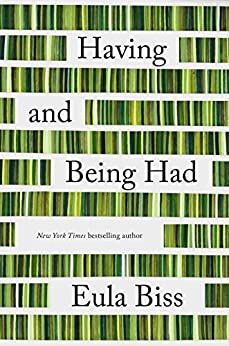More on this book
Community
Kindle Notes & Highlights
“One of the main things Marx noticed about capitalism,” she writes, “is that it really encourages people to have relationships with things instead of with other people.”
“A metaphor is all this really is,” David Graeber writes. He means consumption, which was once the name for a wasting disease, and is now the word anthropologists use for almost everything we do outside of work—eating, shopping, reading, listening to music. Consume, he notes, is from the Latin consumere, meaning “to seize or take over completely.” A person might consume food or be consumed by rage. In its earliest usage, consumption always implied destruction.
What is destroyed when we think of ourselves as consumers, Graeber suggests, is the possibility that we might be doing something productive outside of work.
“It is easier for a camel to go through the eye of a needle than for someone who is rich to enter the kingdom of God.” I pause over this, wondering if money can really be so corrupting that just having it is immoral. I have my doubts, but I also have money.
Piff and his team of researchers found that the rich are more likely than the poor to cut off other vehicles when driving through intersections. And they’re less likely to stop for pedestrians. They’re more likely to cheat in a game, and more likely to think of greed as good. But money is not to blame for this, Piff suggests. What’s to blame is the comfort that a higher class status affords—the independence, the insularity, the security, the illusion of not needing other people. “While having money doesn’t necessarily make anybody anything,” Piff told New York magazine, “the rich are way more
...more
And then there is the Marxist approach to class, which focuses on how economic status gives some people control over the lives of others. The middle class, in this approach, lies between the capitalists who have control and the workers who are controlled. The middle class includes small-business owners who are both capitalists and workers, salaried managers and supervisors whose financial interests are entangled with the corporations they serve, and educated professionals who have enough capital to make investments. This is a middle class with capitalist aspirations. And that is why Marx
...more
Most people, Wright observes, prefer not to think of class as a means of control or exclusion, but as a collection of things that can be acquired, like property and education. Your class, in this approach, is determined by how much you have of three kinds of capital—economic capital, cultural capital, and social capital. Or, what you own, what you know, and who you know.
The way we think about value is one of the things Mazzucato would like to change. Our understanding of value, she observes, is circular. “Incomes are justified by the production of something that is of value. But how do we measure value? By whether it earns income.” And so, “the concept of unearned income vanishes.” If we could think about value differently, we could modify our economic system so that something of value to our entire society, like the well-being of our children or the preservation of our environment, would also have economic value. Investment is essential, she argues. But we
...more
Pleasure is not necessarily harmful, he writes. But it “outrages that part of us which is concerned with growth.”


